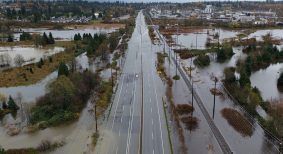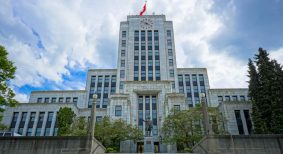Built Green Canada has partnered with the Green Builder Coalition to bring performance-based water efficiency to Canada through its third-party certification program: Water Efficiency Rating Score (WERS).
WERS is based on measurable parameters, along with a scoring scale of zero to 100, zero being the most desirable. Indoor water use considers the main plumbing fixtures of toilets, showers, lavatory and kitchen sinks, clothes washers and structural waste. Those who run the shower for a while before getting hot water are familiar with structural waste: it refers to the amount of water wasted before usable hot water arrives at the furthest hot-water using fixture.
Meanwhile, WERS includes the ability to account for all outdoor water use, as well as reuse via rainwater, greywater and blackwater catchment calculations. Depending on the verified filtration methods for rainwater and greywater, they can be used to offset indoor water use. Additionally, any remaining unused rainwater, greywater and/or blackwater (if applicable) can be credited to potential outdoor use.
“Industry and all orders of government increasingly are focused on the reduction of greenhouse gas emissions (GHGs) and in the residential building sector, the emphasis is on improving the energy performance of buildings,” says Built Green Canada’s chief executive officer Jenifer Christenson.
“While energy efficiency is an essential component of sustainable building practices—and our programs—we want to broaden the conversation and shine a light on a more balanced approach that also includes indoor air quality, waste management, and water conservation—some of the key areas of our programs. Despite Canada’s water endowment, we are not immune to water shortages and periods of drought. Moreover, reductions in water usage will save energy, further contributing to the decrease in GHGs.”
Built Green Canada recognizes the pressure on municipalities to supply water to households: managing water demand and financing, building and repairing water infrastructure is a priority. The reduction in water usage can help lessen a number of challenges, including water shortages and increased energy consumption to pump and treat water, pollutants in water bodies, and the expansion of water and wastewater infrastructure. A focus on water conservation helps reduce the load on civic infrastructure: a reduction that can result in a significant financial savings while supporting climate mitigation targets.
The WERS tool will be Canadianized in the coming months, verifier training will occur in the spring, and Built Green is encouraging trials through 2019 for its single family, renovations, and high density programs. Builders will earn points toward their BUILT GREEN home certification, while being able to understand the overall performance of their projects’ water use and make smart choices on the products they incorporate into their builds—and pass-along the associated benefits to their customers.










